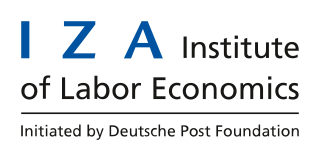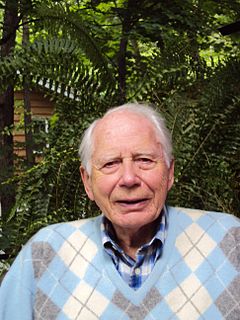Related Research Articles

Import substitution industrialization (ISI) is a trade and economic policy that advocates replacing foreign imports with domestic production. It is based on the premise that a country should attempt to reduce its foreign dependency through the local production of industrialized products. The term primarily refers to 20th-century development economics policies, but it has been advocated since the 18th century by economists such as Friedrich List and Alexander Hamilton.

The IZA - Institute of Labor Economics, until 2016 referred to as the Institute of the Study of Labor (IZA), is a private, independent economic research institute and academic network focused on the analysis of global labor markets and headquartered in Bonn, Germany.

Finn Tarp is a Danish Professor of Development Economics at the University of Copenhagen and former Director of UNU-WIDER (2009-2018), Helsinki, Finland.

Kwabena Duffuor was the Finance Minister of Ghana. He has also served as the governor of the Bank of Ghana. He was named as one of the four best Central Bank Governors in the World at an IMF/World Bank meeting in 1999.

Erik Thorbecke is a development economist. He is a co-originator of the widely used Foster-Greer-Thorbecke poverty measure and played a significant role in the development and popularization of Social Accounting Matrix. Currently, he is H. E. Babcock Professor of Economics, Emeritus, and Graduate School Professor at Cornell University.
Randall Keith Filer is an American economist. Dr. Filer is a professor of economics at Hunter College and the Graduate Center of the City University of New York and a Visiting Professor of Economics and Senior Scholar at CERGE-EI. He is President of the CERGE-EI Foundation, a US-based nonprofit that supports economic education in the post-communist countries of Central and Eastern Europe. Professor Filer serves as the Eastern European Coordinator of the Global Development Network (GDN), and is a member of the International Faculty Committee at the International School of Economics in Tbilisi (ISET) in Tbilisi, Georgia. He is a research Fellow of the Institute for the Study of Labor (IZA) in Bonn, CESifo (Munich), the William Davidson Institute and the Manhattan Institute (NYC).
Energy use and development in Africa varies widely across the continent, with some African countries exporting energy to neighbors or the global market, while others lack even basic infrastructures or systems to acquire energy. The World Bank has declared 32 of the 48 nations on the continent to be in an energy crisis. Energy development has not kept pace with rising demand in developing regions, placing a large strain on the continent's existing resources over the first decade of the new century. From 2001 to 2005, GDP for over half of the countries in Sub Saharan Africa rose by over 4.5% annually, while generation capacity grew at a rate of 1.2%.

Ernest Aryeetey, is the Secretary-General of the African Research Universities Alliance (ARUA) and a former Vice-Chancellor of the University of Ghana.
Juliet U. Elu is an American economist who is currently Charles E. Merrill Professor of Economics and Chair of the Division of Business and Economics at Morehouse College. She was previously Vice Chancellor of Gregory University in Nigeria and she is a former president of both the National Economic Association and the African Finance and Economics Association.
Haroon Bhorat is Professor of Economics and Director of the Development Policy Research Unit (DPRU) at the University of Cape Town. His area of research has concentrated on labour economics and poverty/income distribution mainly in his native South Africa, and recently, been expanded to other parts of Africa - in which he is world-renowned authority.
Christopher R. Udry is an economist who currently serves as King Professor of Economics at Northwestern University. Udry is the co-founder and current co-director of the Global Poverty Research Lab at the Kellogg School of Management. Udry's research focuses mostly on development economics, in particular rural development in Sub-Saharan Africa, to which he owes his position as one of the world's most prominent agricultural economists.
Uwe Sunde is a German economist and currently Professor of Economics at the Ludwig Maximilian University of Munich (LMU) as well as a Research Professor in the ifo Center for Labour and Demographic Economics. Sunde's research interests include long-term development and growth, political economy, labour economics, population economics, and behavioural economics. In 2015, his research on risk preferences and on the role of life expectancy and human capital for long-term economic development earned him the Gossen Prize.
John Williams Mellor is a French-born American economist, known for his work in the field of economic and agricultural development in third world countries. In 1985 he was awarded the Wihuri International Prize, for his “constructive work that has remarkably promoted and developed the security of nutrient supply for mankind.” A Fulbright Scholar, he spent most of his academic career at his alma mater, Cornell University. In the early 1970s he became an economist for USAID, eventually becoming their chief economist in 1976. After leaving USAID, he became the second director-general of the International Food Policy Research Institute in 1977, where he remained until 1990. He has authored numerous articles, and several books, chiefly regarding economic and agricultural development in third world countries. Currently he runs John Mellor Associates as well as being a professor emeritus at Cornell.
Hanan G. Jacoby is an American economist and Lead Economist in the World Bank's Development Research Group.
Marcel Fafchamps is a Belgian economist and senior fellow at the Freeman Spogli Institute for International Studies. He belongs to the leading economists in the field of rural development.

Elizabeth Asiedu is a professor of economics at the University of Kansas. She has facilitated research that is centered around foreign aid, foreign directed investment (FDI), and gender. She is a founder of the Association for the Advancement of African Women (AAAWE), as well as the current president of the organization. Asiedu is an editor of the Journal of African Development.
Abena Frempongmaa Daagye Oduro is the Vice Dean of the Faculty of Social Science at the University of Ghana where she also holds the position of Associate Professor of the Department of Economics. Having had 30 years of experience teaching, her areas of specialization are centred around gender and asset management, international economics, poverty analysis, macroeconomic theory and trade policy. Abena Oduro is the first Vice President of the Association for the Advancement of African Women Economists (AAAWE) where Professor of Economics in University of Kansas, Elizabeth Asiedu, is the founder and president. She is also the president elect of the International Association for Feminist Economics (IAFFE), her tenure will be 2021 to 2022.
The National Economic Association (NEA) is a learned society established in 1969 focused on initiatives in the field of economics.
Ann Willcox Seidman was an American economist, active in African liberation struggles, and a writer and university professor.
Gregory N. Price is an American economist who is a professor of economics at the University of New Orleans, and a former president of the National Economic Association.
References
- 1 2 "Kwabena Gyimah-Brempong | IZA - Institute of Labor Economics". www.iza.org. Retrieved 2021-02-23.
- ↑ "National Economic Association 50th Anniversary Celebration and Honors Luncheon" (PDF). January 4, 2020.Cite journal requires
|journal=(help) - ↑ "Conference in Honor of Professor Kwabena Gyimah-Brempong, Tampa, Florida, March 2016 ASSOCIATION FOR THE ADVANCEMENT OF AFRICAN WOMEN ECONOMISTS (AAAWE)" . Retrieved 2021-02-23.